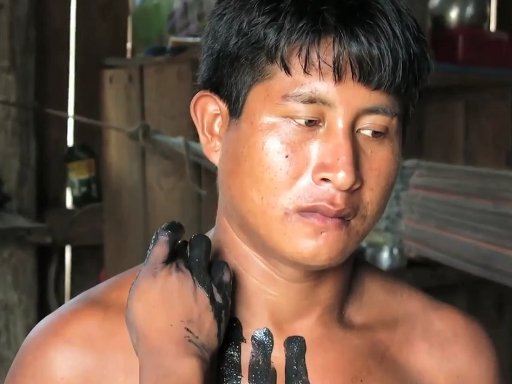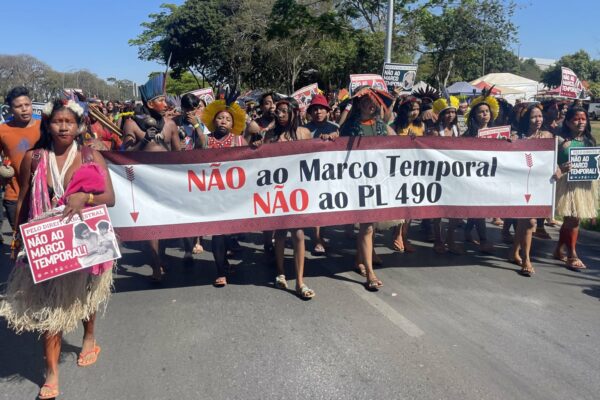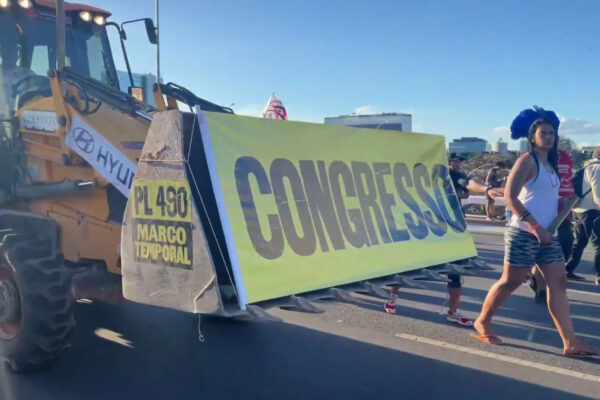Meet the Xikrín, a subgroup of the Kayapó, the westernmost group of the Northern Gê. The Kayapó – who call themselves “Mebengnôkre” meaning “people of the big water” – are divided into 15 autonomous groups, each with its own name and distinct cultural characteristics. Collectively, Kayapó communities have been fighting the encroaching Belo Monte dam project which threatens their territories and very survival for decades.
Support the Fight!
Donate today to support Mukuka and the fight to stop the Belo Monte Dam.
I met Mukuka Xikrin for the first time in February of 2012. He was 23 years old and a student at that time, knowledgeable and quiet with the inside strength of a leader hidden behind his humble look. He took me to seven Xikrin communities on the Bacajá River, a tributary of the Xingu, including his own village Poti-Krô. At that time Mukuka knew what Belo Monte meant for his community but didn’t realize what it would mean for his own future and growing leadership role.
Months later Mukuka became a target because of his strong opinions about the Belo Monte dam. He was threatened and harassed, and pushed into isolation for a time in order to protect his family. One year later I returned to the same place where we had met before, his community Poti-Krô. That sense of strength and humility were still in his eyes, but Mukuka had lost the urge to fight; he was simply looking for a way his community could survive.
“The government says Belo Monte will bring development to the country, and they said they would consult the indigenous because it would affect indigenous people,” Mukuka told me at a community meeting. “But the ‘consultation’ was like a little bird that comes from one side and crosses to the other side. It was a very quick conversation, but to make indigenous peoples understand you have to repeat things many times. They took advantage of this weakness and lack of understanding, then presented the emergency plan and gave just the little things that people wanted…FUNAI could have worked to bring real things to the community, but that never happened. They just started making these little blue houses, giving boats, and saying they’re ‘doing their best.’ But the things they gave to us only caused more problems – more division, headaches, trouble.”
“Last year, because of construction, we noticed mud in the water, and the fish started dying,” Mukaka when on. “Nobody from Norte Energia explained anything. We started noticing these effects just by observing. We asked if anyone from the company could explain these effects but no one ever came to explain anything or to talk about compensation.”
When asked about plans for the future he responded, “I don’t know – there’s no plan for what will happen. If there’s no road, we’ll be stuck here. The company has a plan to build a road, but it never came. If it gets too rough here, we’ll just have to move.”
How do you feel about Belo Monte? we asked. “I feel angry inside, and at the same time, sad. Most people feel this way. And also confusion. Things are not clear, and they use difficult words to explain.”
However Mukuka also was hopeful for the future. He said he wished for the kids to be able to live in the world he did, with a lively culture and preserved language. “I think one day the dam will be stopped,” he said. “We believe in God.”
Links:
- An Evening with the Bacajá Xikrin
- Kayapo Courage
- Rain Forest Warriors: How Indigenous Tribes Protect the Amazon
- Brazil’s Belo Monte Dam














